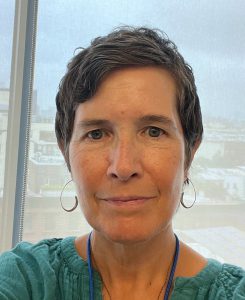The ongoing Covid-19 pandemic has brought to light pressing health disparities in the U.S., especially in the area of mental health. The stressors and economic fallout from the pandemic have disproportionately impacted Black and Latino communities, revealing a need for a new approach to service delivery.
To address this mental health treatment gap, CUNY Graduate School of Public Health and Health Policy (CUNY SPH) Associate Professor and Center for Innovation in Mental Health Director Victoria Ngo, Harlem Health Initiative Director Deborah Levine, and Harlem Congregation for Community Improvement Executive Director Malcolm Punter are working with Healthfirst Managed Care, Coordinated Behavioral Care, and other community stakeholders to transform how mental health services are delivered in Harlem. The Harlem Strong Mental Health Collaborative received a nearly $2 million NIH grant to develop a multisectoral coalition to implement a community-wide collaborative care model to address mental health and socio-economic risks across a network of housing developments, primary care sites, and community-based organizations.

“Health disparities require an integrated multisector equity-focused, community-based approach,” says Ngo. “The long-term goal of our study is to develop a sustainable model for task-sharing mental health care that will be embedded in a coordinated comprehensive network of services. Now more than ever, we need to address the mental health and economic crisis for ethnic minorities and work with community partners in Harlem to build capacity for mental health care in places where people live and already go to get help for health and social services. By leveraging community assets and working across sectors to increase linkages to a wide range of community services, we hope to close the mental health treatment gap in Harlem and beyond.”
Ngo and team will:
- Examine the impact of the Harlem Strong Community Mental Health and Economic Empowerment Collaborative, a community-wide multisectoral coalition in which a health insurer works with community-based organizations and medical and behavioral health providers to problem solve financing, access, and quality of care barriers
- Support capacity building for mental health task-sharing for community health workers
- Facilitate coordination and collaboration across mental health and behavioral health, primary care, and social services
- Identify a set of common metrics and strategies for continuous system quality improvement
- Evaluate the impact and cost-effectiveness of the program using a hybrid Implementation-Effectiveness design to assess effects of the Harlem Strong Collaborative on system and consumer outcomes
Funding is provided by the NIH’s Transformative Research to Address Health Disparities and Advance Health Equity Initiative [Grant Number: 1U01OD033245-01], which backs projects aiming to prevent, reduce, or eliminate health disparities and advance health equity.
For more information contact:
Ariana Costakes
Communications Editorial Manager
ariana.costakes@sph.cuny.edu
About CUNY SPH
The CUNY Graduate School of Public Health and Health Policy (CUNY SPH) is committed to promoting and sustaining healthier populations in New York City and around the world through excellence in education, research, and service in public health and by advocating for sound policy and practice to advance social justice and improve health outcomes for all.
About CIMH
The Center for Innovation in Mental Health (CIMH) is an academic training and research center housed at CUNY SPH that promotes the reach and adoption of effective mental health interventions through research, evaluation, training, and policy. CIMH engages in local and global efforts to advance mental health service and research to improve access and quality of mental health care. The center builds on a wealth of scholarly and practical expertise within the university, advisory board members, and collaborators.



